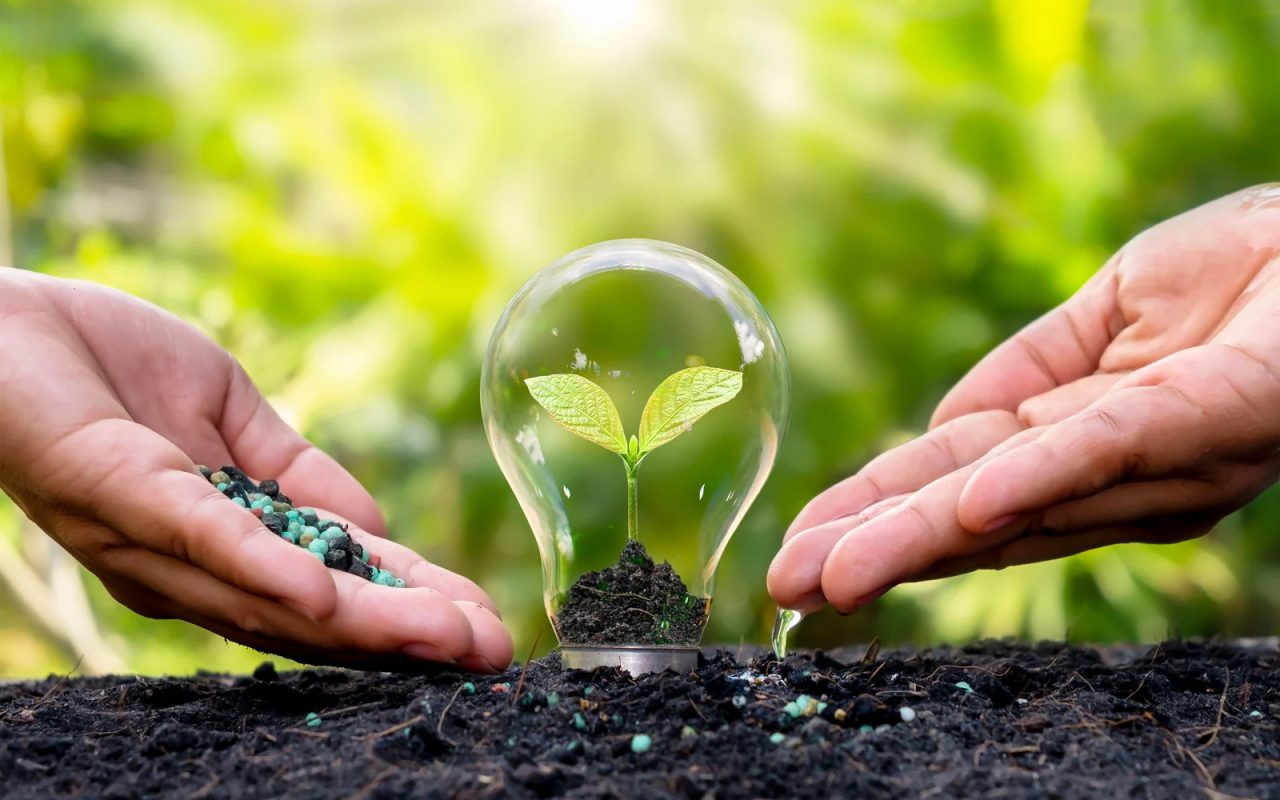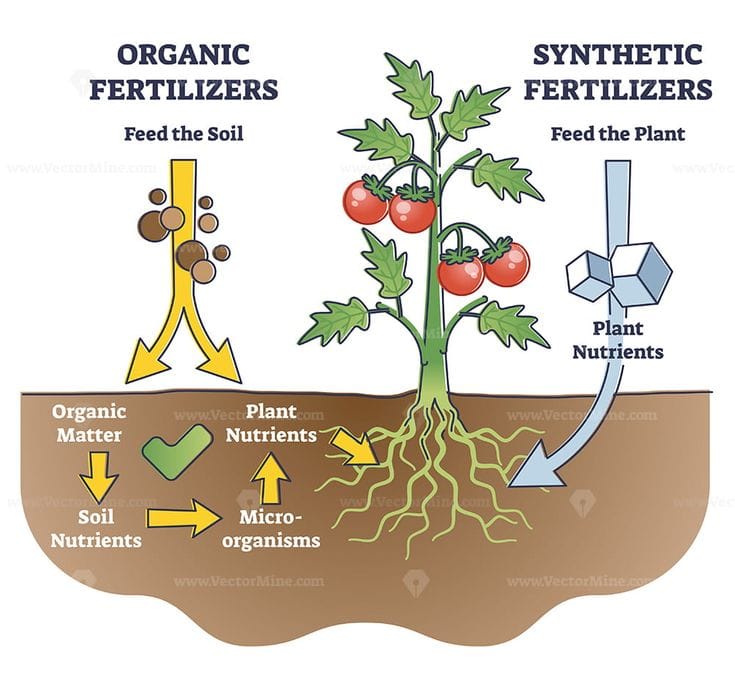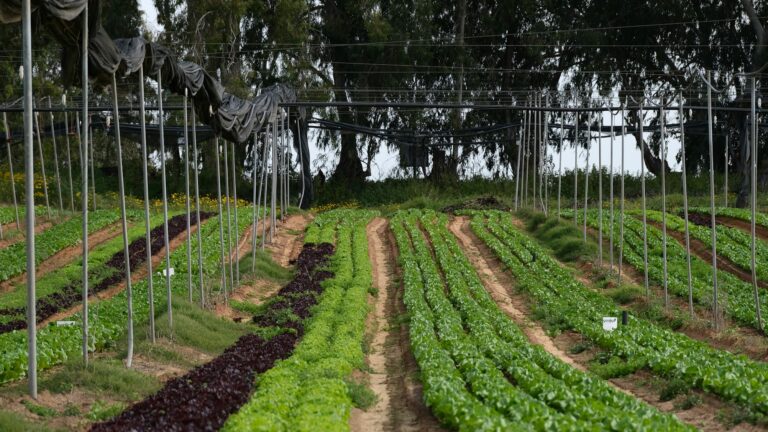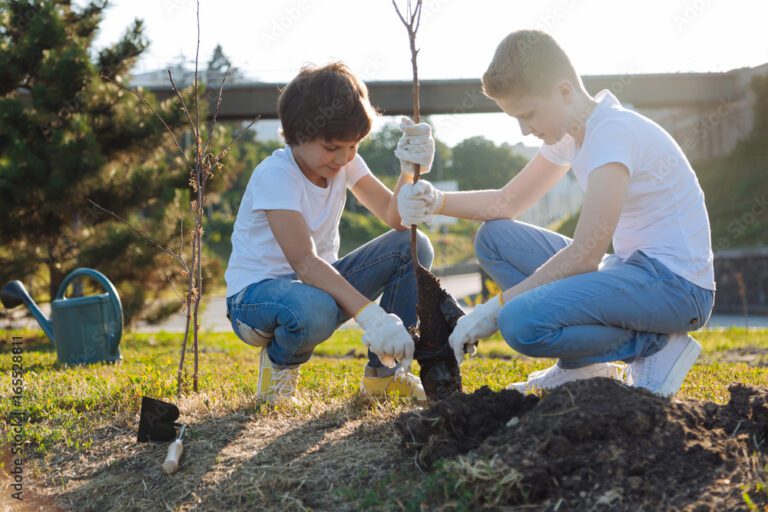![]()
Organic vs Chemical Fertilizers – Which is Better?

ORGANIC VS CHEMICAL FERTILIZER -WHICH ONE IS THE BEST ?
Choosing the Right Fertilizer for a Thriving Garden
Introduction
Every gardener looks forward to beautiful flourishing plants, but the reality is that all gardens hide their secret elsewhere – under the soil. Your Structural and fertilizer management greatly functions to avail nutrients and control appropriate plant growth. Often, the main question is asked – Do you prefer organic (Natural) fertilizers or chemical ones?
Organic and non-organic fertilizers have differed for some years now. Both sides of the divide have advantages, but they equally possess certain drawbacks. It is essential to learn how all affect the plants, soil, and environment to make an educated choice.
Here, we will show some bits of the argument to clarify, so that at the end, you will have an idea concerning the perfect answer for your garden. Let’s dig in!
Understanding Fertilizers, What’s The Difference:



Organic fertilizers refer to materials obtained from nature – compost, manure, kitchen waste, and plant residues. Instead of feeding plants in plenty at once, organic fertilizers provide nutrients gradually, permitting plants to utilize them slowly over time.

 Boost Your Garden Naturally! Compost and manure enrich the soil, fostering healthier, stronger plants. Go organic for long-term sustainability!
Boost Your Garden Naturally! Compost and manure enrich the soil, fostering healthier, stronger plants. Go organic for long-term sustainability! 
 “
“- Organic fertilizers marked improvements in soil structure due to the addition of organic matter.
- Increase the population of useful microorganisms that assist by decomposing the nutrients.
- Lessens damage done to nature since they are biodegradable and non-poisonous.

Chemical fertilizers are factory products meant to help plants develop further by instantly feeding them with nutrients. These can undoubtedly prove helpful, especially in meeting short-term goals, but there are some potential areas of worry in the long run.

- Helps plants quickly recover by automatically fixing their nutrient shortages.
- Readily available and can be adjusted for exact specifications for propagated plants.
- Permanently destroys soil quality, resulting in plants relying more and more on artificial nutrients.
- If used excessively, they have the potential to pollute waterways and endanger ecosystems.
Now, let us analyze their most important respective features to determine which relies more on competencies in terms of garden conditions.
Key Comparisons: Organic vs. Chemical Fertilizers
1. Nutrient Absorption: Easy Correction vs. Healing Treatment.




2. Soil Condition: Maintaining vs. Exhausting




3. Environmental Consequences: Positive vs. Negative



4. Expense & Supply: Self-Made vs. Purchasable



Which One Should You Choose?
The answer is not simple, as it solely depends on your gardening objectives. For quick results, chemicals do the trick but for that long-term sustainable, flourishing garden, organics are the only way.
The optimal solution? A blend of the two!
Invoke organic matter to improve soil health and offer nutrients for the long haul.
Used chemical fertilizers can be beneficial when applied moderately for a quick lift without being reliant on them too heavily.
By striking a harmonious equilibrium, you achieve the best of both realms –healthy plants and a sanitized environment.
**How to Transition to Organic Fertilizers**


Transform vegetable peels, coffee grounds, and even eggshells into nourishing compost that will greatly supplement the soil.

Banana peels are great for flowering plants as they add potassium.
Molasses helps in feeding the beneficial microbes which increases soil health.

Add diverse crops sequentially in the same area to maintain the balance of nutrients in the soil.
Further, add mulch such as straw or leaves to help with moisture retention and natural weed suppression.
**Conclusion: The Smart Gardener’s Choice**
Finding the ideal fertilizer goes beyond aiding in the growth of plants today, it’s a matter of what will keep your garden flourishing years from now.












